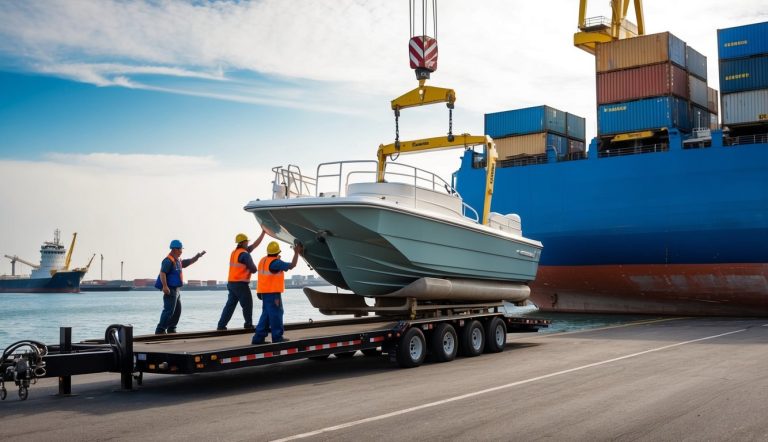Shipping a pontoon boat requires careful planning, and understanding what insurance covers is a critical part of that process. When you transport your pontoon boat, having the right insurance protection can save you from potential financial losses if something goes wrong during transit.
Insurance for pontoon boat shipping typically covers damage from accidents, theft, and natural disasters while your boat is being transported. Most boat shipping companies maintain cargo insurance that meets federal requirements, but coverage limits and specific protections vary between providers. You should check both your existing boat insurance policy and the shipping company’s coverage to ensure your pontoon is fully protected during its journey.
Hull damage protection
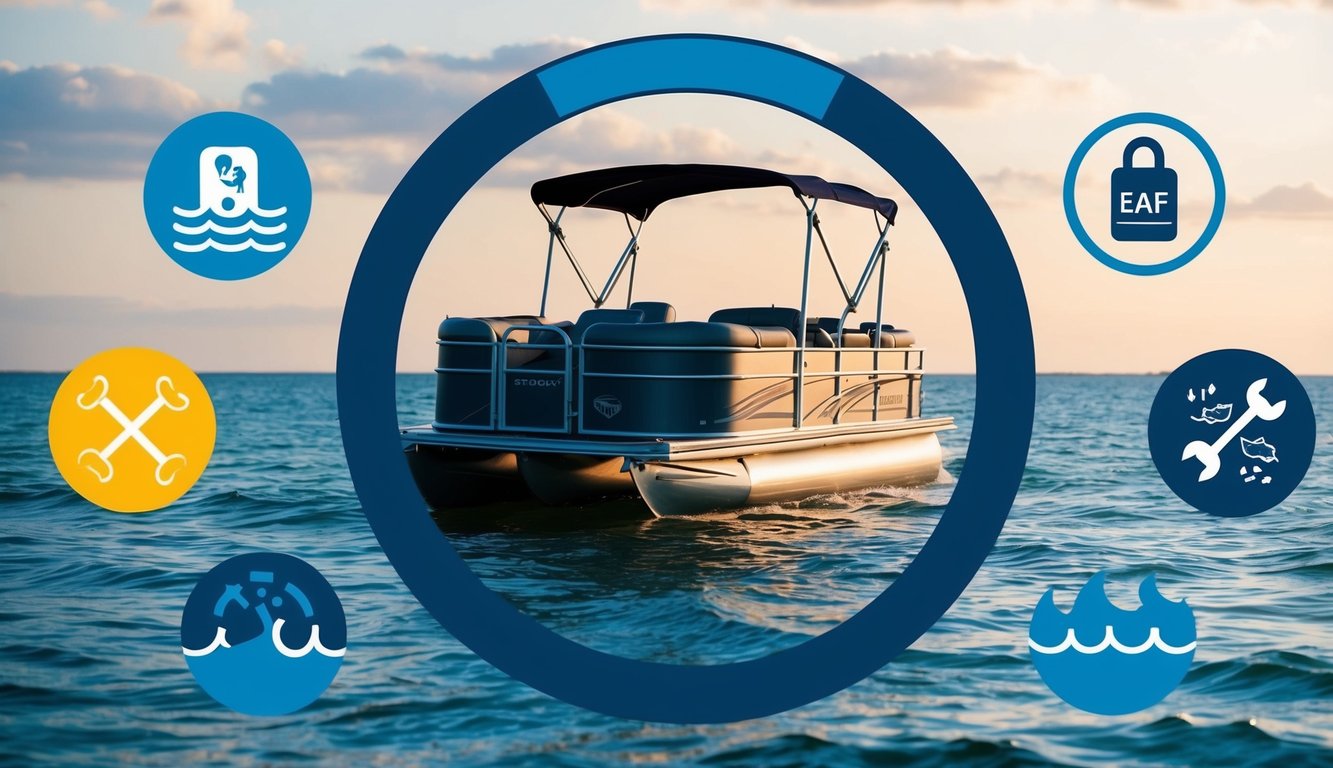
- When shipping your pontoon boat, having the right insurance coverage for hull damage is crucial. Hull insurance specifically covers the body of your vessel from various risks during transport.
- Most shipping companies require basic insurance, but this might not fully protect your investment. The hull, which is the actual body of your pontoon boat, faces risks like collisions, dropping, and structural damage during loading and unloading.
- You should verify if your current boat insurance includes transit coverage. Many comprehensive boat policies protect your watercraft against damages from events outside your control, including those that might occur during shipping.
- For complete protection, consider specialized commercial hull coverage that includes transportation risks. This type of policy covers physical damage to the hull, machinery, and equipment of vessels in transit.
- Before shipping, carefully check if the transport company has appropriate insurance. It’s recommended that you obtain your own coverage even if the shipper offers insurance, as their policies might have significant limitations.
Liability coverage
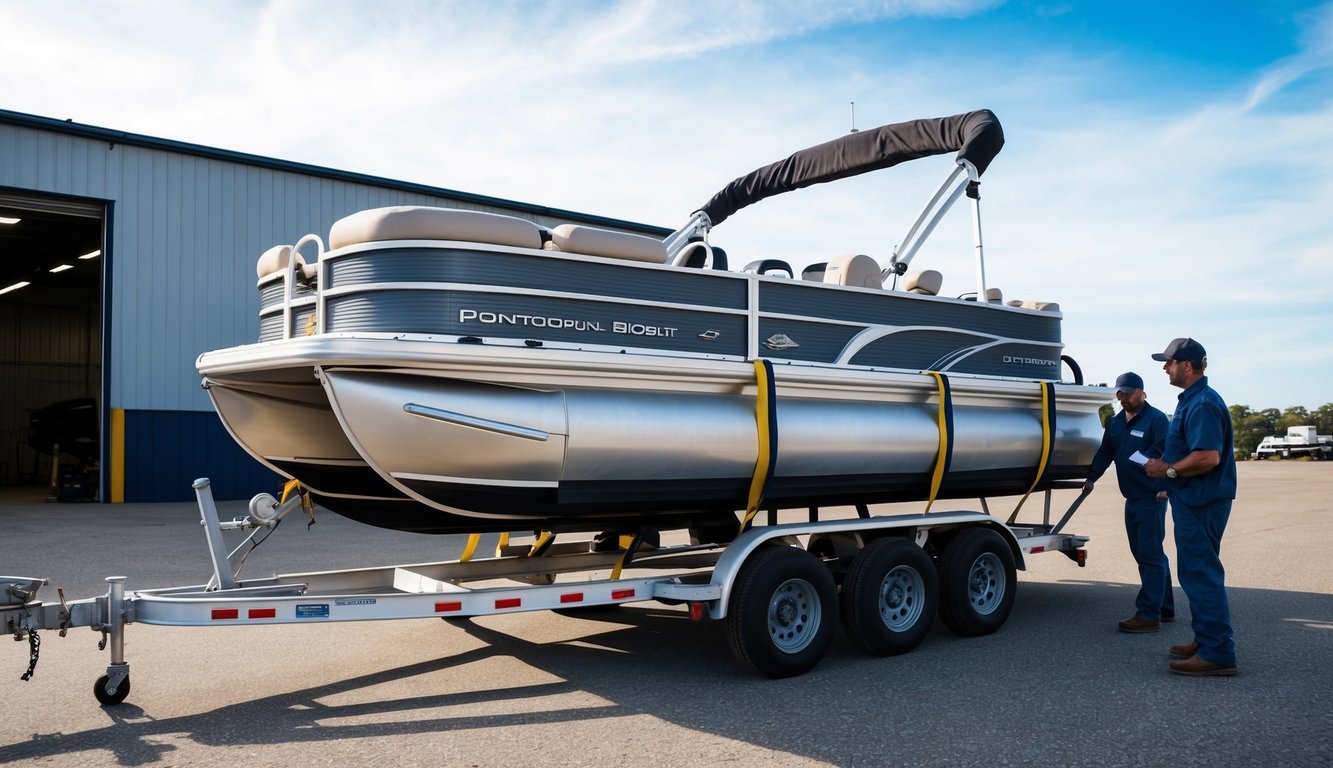
- When shipping your pontoon boat, liability coverage is crucial. This type of insurance protects you if you’re found responsible for injuries to others or damage to their property during transport or while on the water.
- Bodily injury liability is a key component. It covers you if you’re in a boat accident and liable for injuring others. This can help pay for medical expenses, legal fees, and other costs related to injuries.
- Property damage liability works similarly but for things rather than people. It helps pay to repair or replace other people’s property that you may damage with your pontoon boat.
- Many insurance experts recommend between $100,000 to $1 million in bodily injury and property damage liability coverage. The amount you choose should reflect your assets and potential risk exposure.
- Some policies offer protection and indemnity insurance. This is the broadest of all liability coverages and is designed specifically for maritime situations, which have unique legal considerations.
- When shipping your pontoon boat, verify that your liability coverage extends to transportation scenarios. Not all standard boat policies automatically include this protection during shipping.
Medical payments coverage
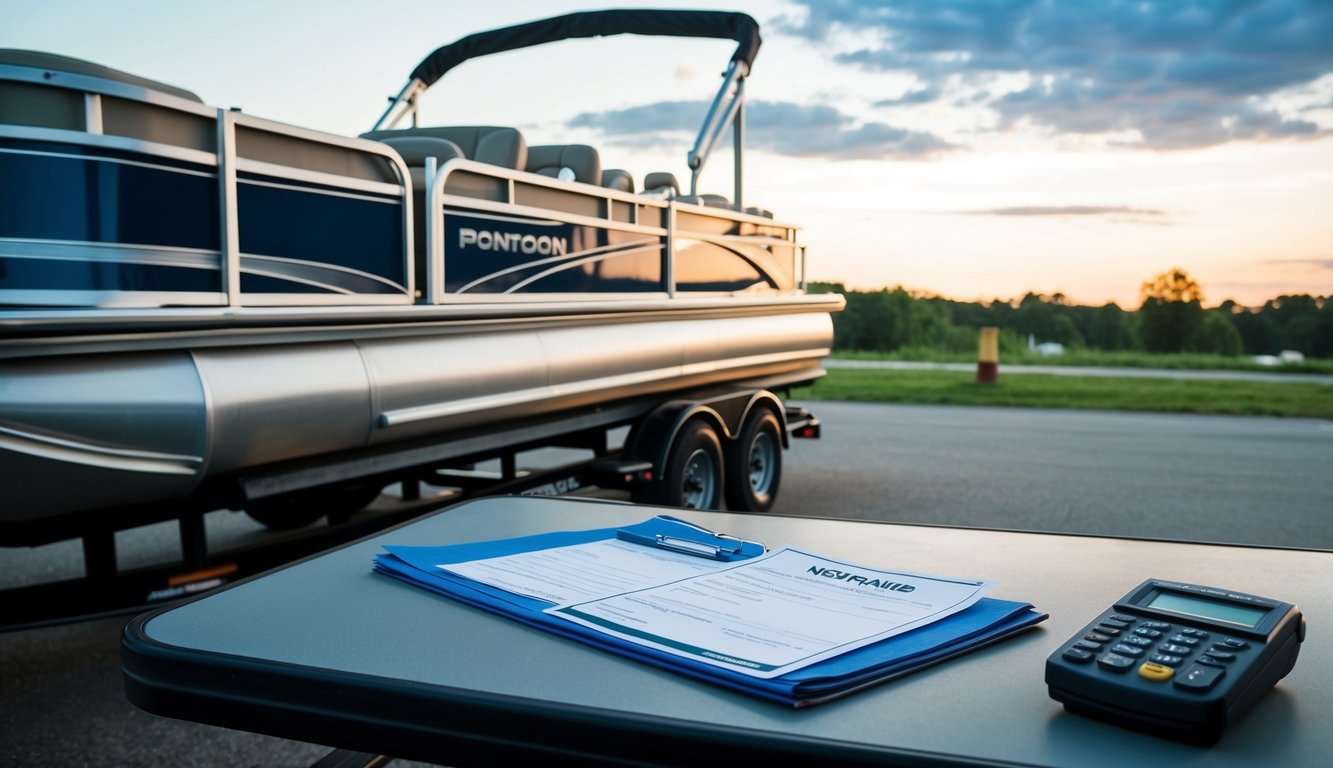
- Medical payments coverage is an important part of boat insurance when shipping your pontoon boat. This coverage pays for medical bills if you or your passengers are injured in a covered accident.
- The best part about medical payments coverage is that it applies regardless of who is at fault. This means you’re protected even if you caused the accident.
- Medical payments coverage has no deductible, so you won’t have to pay anything out-of-pocket before the coverage kicks in. This can be a significant financial relief during stressful situations.
- Typical coverage limits for medical payments range around $10,000, but this can vary by insurance provider. You can often adjust these limits based on your specific needs.
- This coverage protects people injured while on, boarding, leaving, or involved in an accident with your pontoon boat. This broad protection ensures that anyone interacting with your boat has some level of medical coverage.
- When shipping your pontoon boat, making sure you have adequate medical payments coverage can give you peace of mind knowing that you and your passengers are financially protected in case of injuries.
- Fuel spill liability
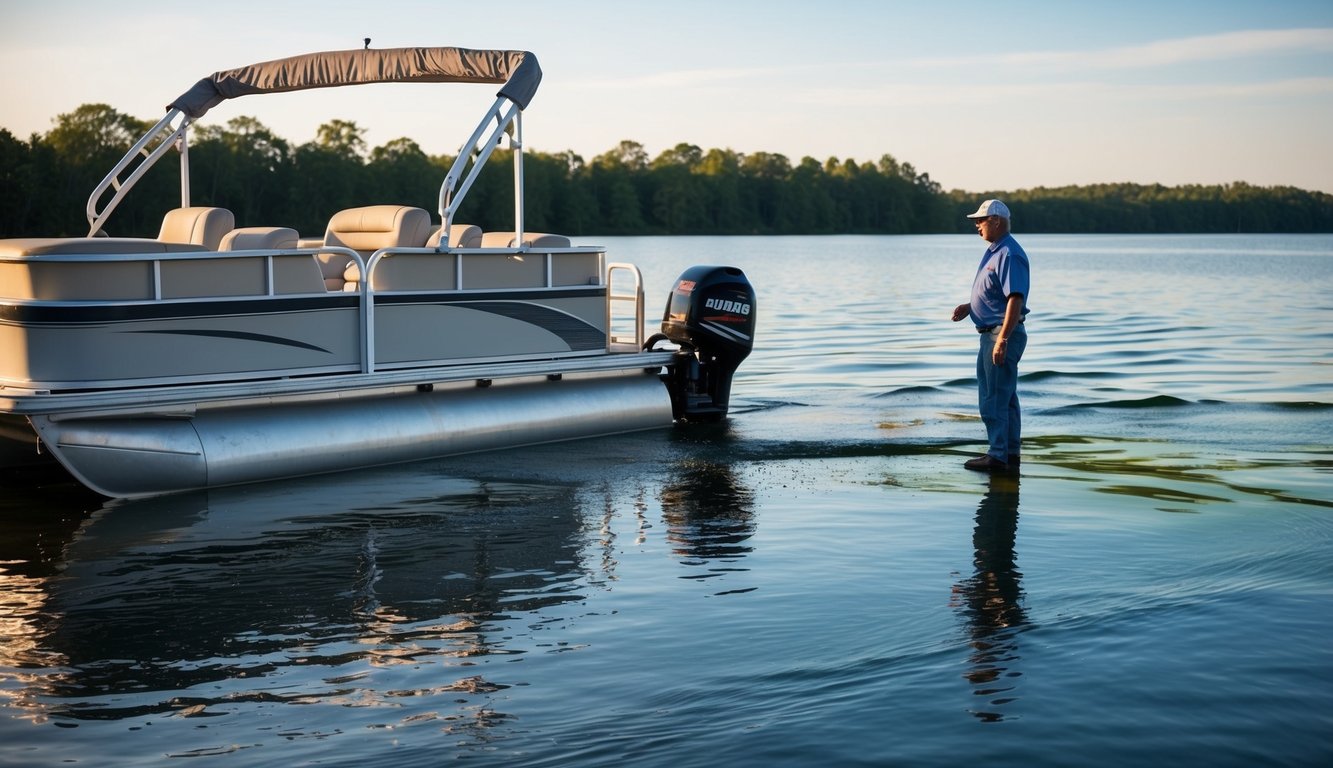
- When shipping your pontoon boat, fuel spill liability is an important coverage to consider. This protection helps if your boat accidentally releases fuel or oil into the water during transportation or loading.
- Many boat insurance policies include fuel spill liability coverage, but coverage limits can vary significantly. Some insurance companies like BoatUS offer coverage up to $854,400 for fuel spills, which aligns with statutory requirements.
- You should verify if your policy covers spills that happen during shipping specifically. Some policies only pay for cleanup costs if the spill results from a “covered loss”, so read the fine print carefully.
- When comparing insurance options, check if providers like Progressive include fuel spill remediation in their standard coverage. This can save you from potentially expensive cleanup costs.
- The coverage typically handles cleanup expenses, environmental damage, and potential fines. Without proper coverage, you could be personally responsible for these costs, which can quickly become substantial.
On-water towing
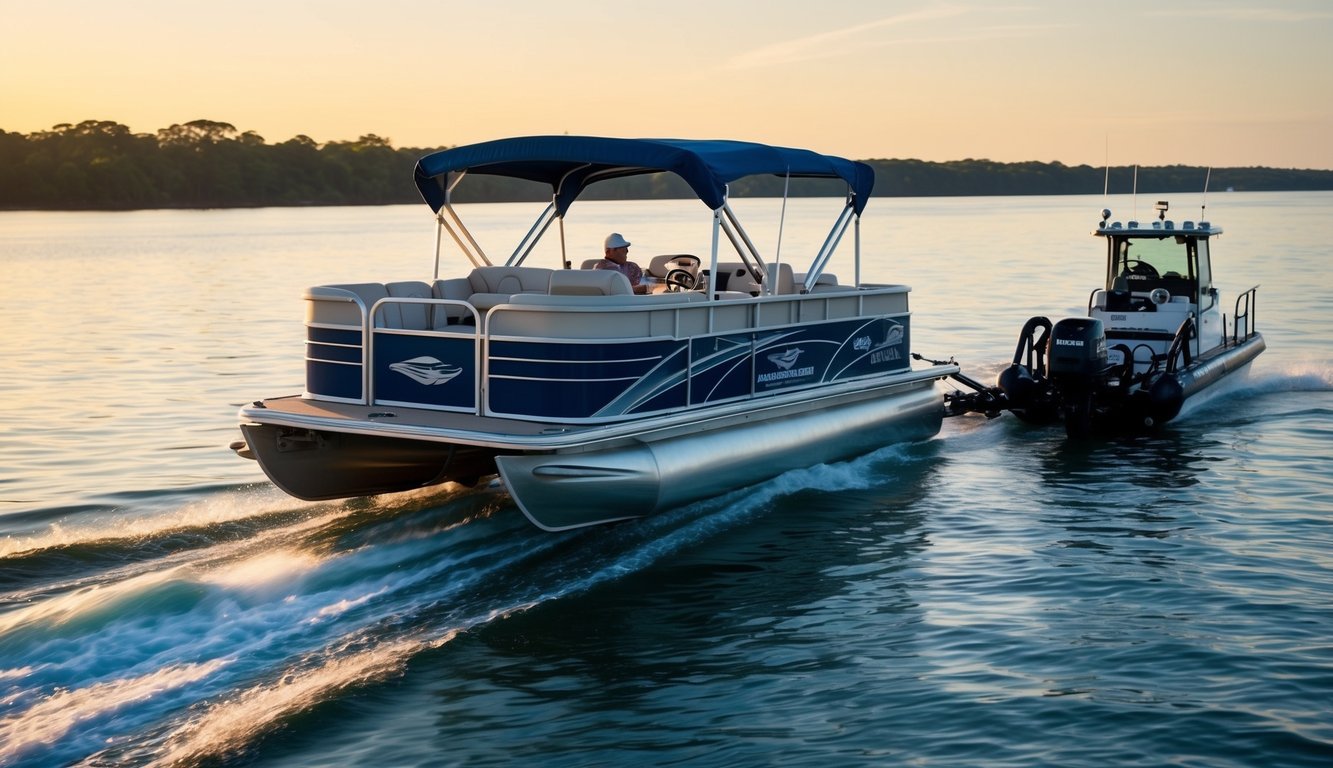
- When shipping a pontoon boat, you might wonder if your insurance covers on-water towing. This is an important consideration for any boat owner.
- On-water towing coverage helps when your boat breaks down while you’re out on the water. It typically includes services like towing to the nearest repair facility, jump starts, fuel delivery, and mechanical assistance.
- Many insurance providers offer this as an add-on to your boat insurance policy. Companies like Progressive provide Sign & Glide on-water towing which covers unlimited tows and other assistance services.
- BoatUS offers unlimited towing coverage for as little as $3 a month depending on your boat size and location. This can be a worthwhile investment considering a single tow without coverage can cost hundreds of dollars.
- Some towing services like Sea Tow provide membership programs that include various assistance services beyond just towing. These often cover fuel delivery, jump starts, and help with ungrounding your boat.
- Before shipping your pontoon boat, check if your current insurance includes towing coverage. If not, consider adding it to avoid unexpected costs if mechanical issues arise during transportation or while you’re using your boat.
Roadside towing
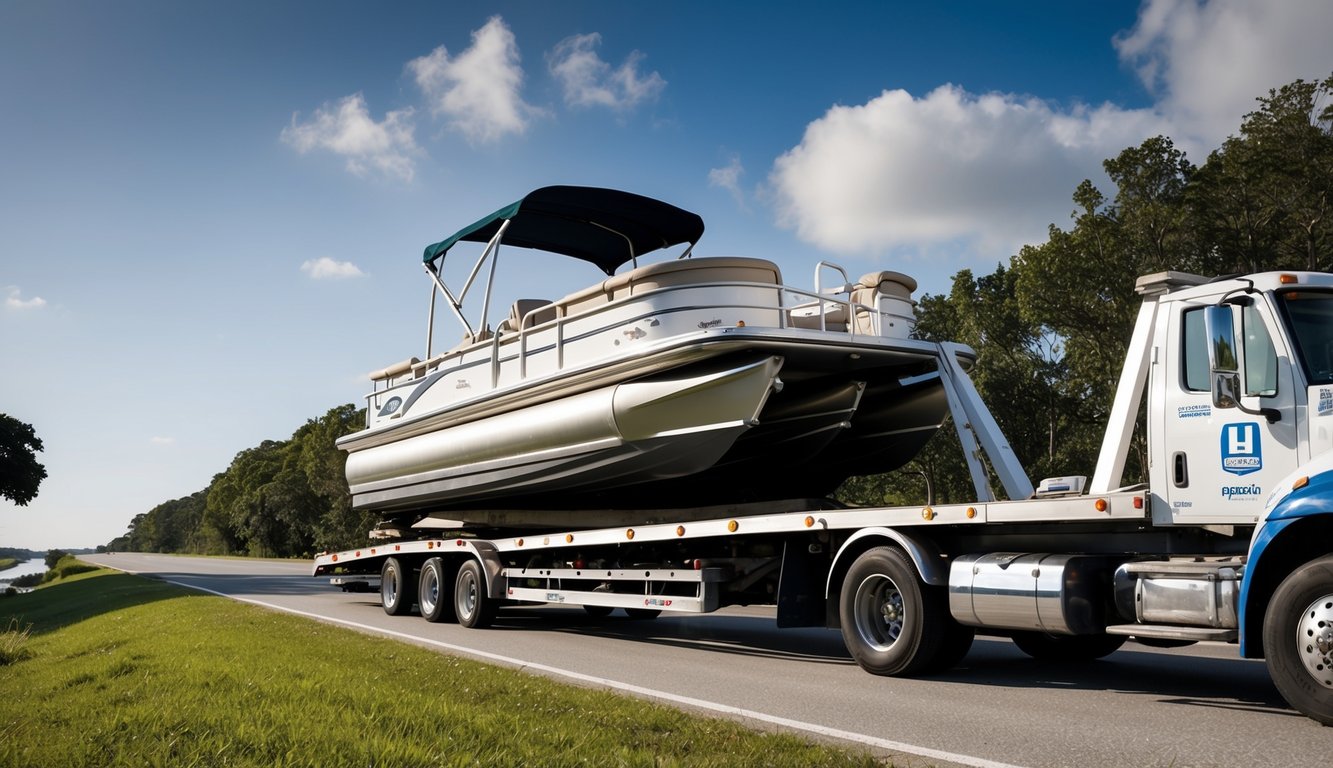
- When shipping your pontoon boat, having roadside towing coverage can save you from unexpected troubles. This coverage helps when your boat trailer breaks down during transport.
- Many boat insurance policies offer roadside assistance for your trailer. This is often included automatically when you list your trailer on your policy.
- If your boat trailer gets a flat tire, the battery dies, or other mechanical problems occur, roadside towing coverage comes to the rescue. The service typically includes towing to the nearest repair facility.
- Your coverage may also extend to the vehicle towing your pontoon boat. If your tow vehicle becomes disabled, the insurance can help get both your vehicle and boat trailer to safety.
- When shopping for pontoon boat insurance, make sure to consider roadside towing as part of your coverage options. This small addition can prevent big headaches during transportation.
- The cost for this coverage is usually reasonable compared to paying out-of-pocket for emergency towing services. Some policies include both on-water and roadside assistance in one package.
- Check with your insurance provider about distance limits and what specific services are included in your roadside towing coverage.
Personal Property Coverage
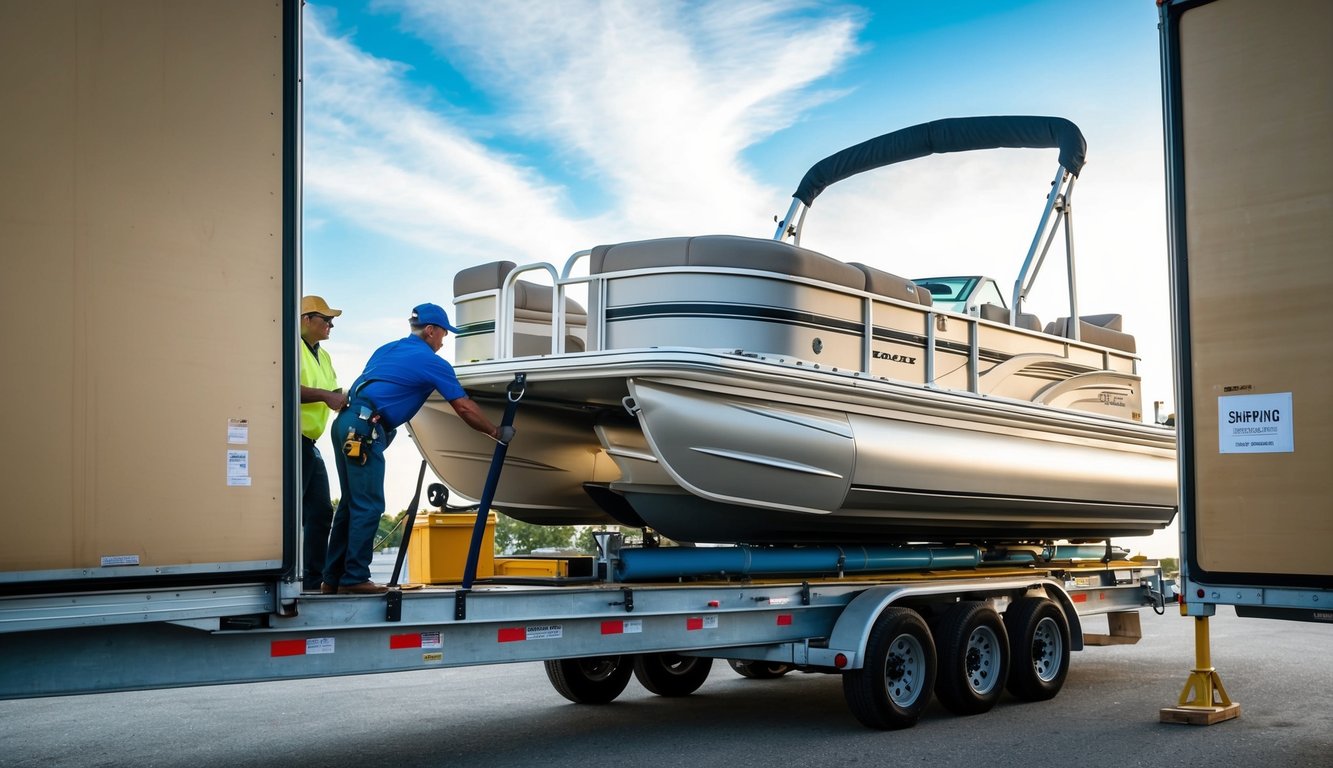
- When shipping your pontoon boat, personal property coverage is an important consideration. This type of coverage protects the items you keep on your boat against damage, loss, or theft during transit.
- Many boat insurance policies include some level of personal property coverage for items aboard your vessel. This can include fishing equipment, water sports gear, electronics, and other belongings.
- The coverage amount varies by policy. Some insurers might offer limited coverage for personal items, while others provide more comprehensive protection.
- Before shipping your pontoon boat, it’s wise to take inventory of all personal property on board. Document these items with photos and receipts when possible.
- You should check if your policy covers items against theft and vandalism during transport. Not all standard policies include this protection automatically.
- Some insurers may require additional riders or special coverage for high-value items. Electronics, expensive fishing gear, or custom equipment might need separate coverage.
- Remember to remove valuable personal items before shipping when possible. This reduces your risk and may help you avoid paying higher insurance premiums.
Mechanical breakdown coverage
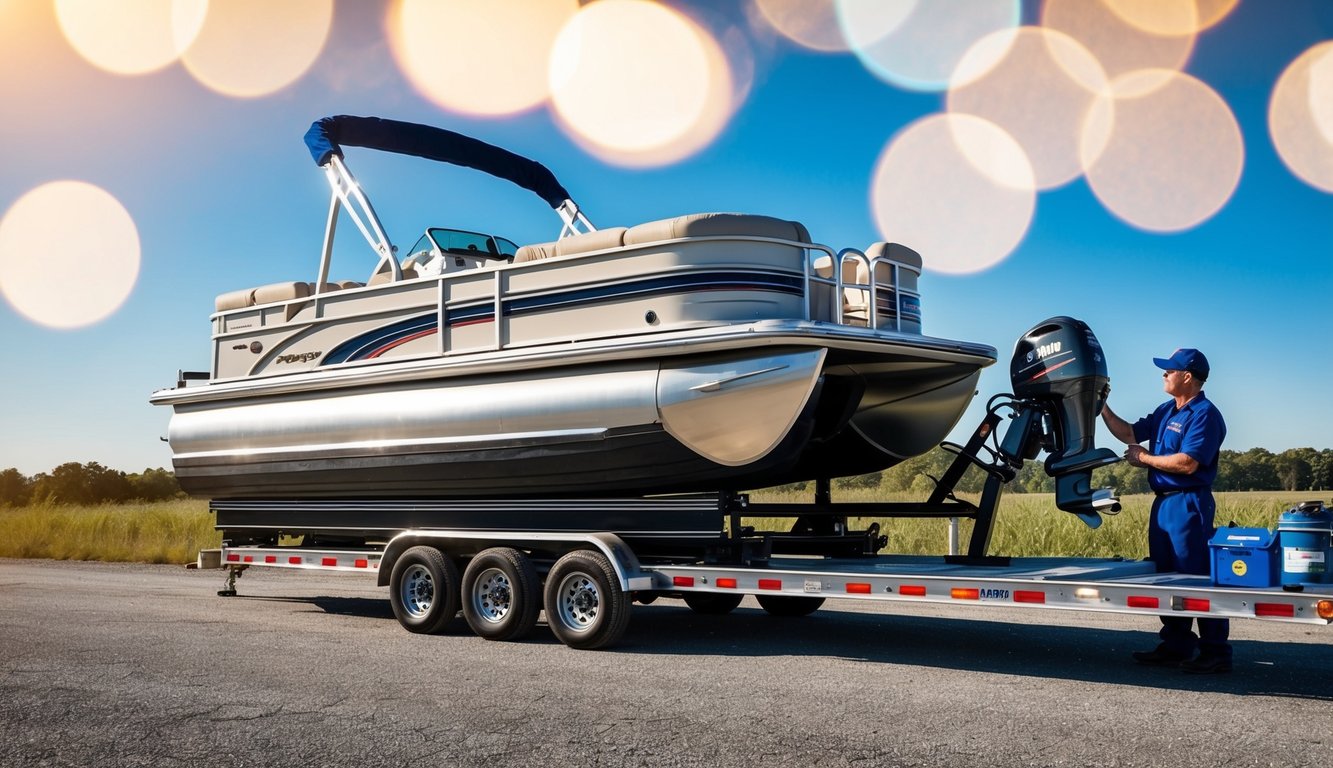
- When shipping your pontoon boat, mechanical breakdown coverage can be a vital addition to your insurance policy. This type of coverage specifically protects the mechanical propulsion system of your boat.
- Most standard boat insurance policies don’t cover wear and tear on mechanical components. This is where mechanical breakdown coverage becomes valuable, as it pays for repairs or replacements when parts fail.
- For pontoon boats, this coverage typically includes the lower unit of an outboard motor. Some policies may extend to cover both upper and lower units of your boat’s mechanical systems.
- During shipping, your pontoon’s engine and mechanical parts face vibration and stress that could lead to issues later. Having this coverage ensures you’re protected if problems arise after transport.
- The cost of this coverage varies between insurance providers. You should check if your policy includes this protection or if you need to add it as an optional coverage.
- Before shipping your pontoon, verify exactly what mechanical components are covered. Some policies may have exclusions or require additional endorsements for complete protection during transport.
Collision coverage
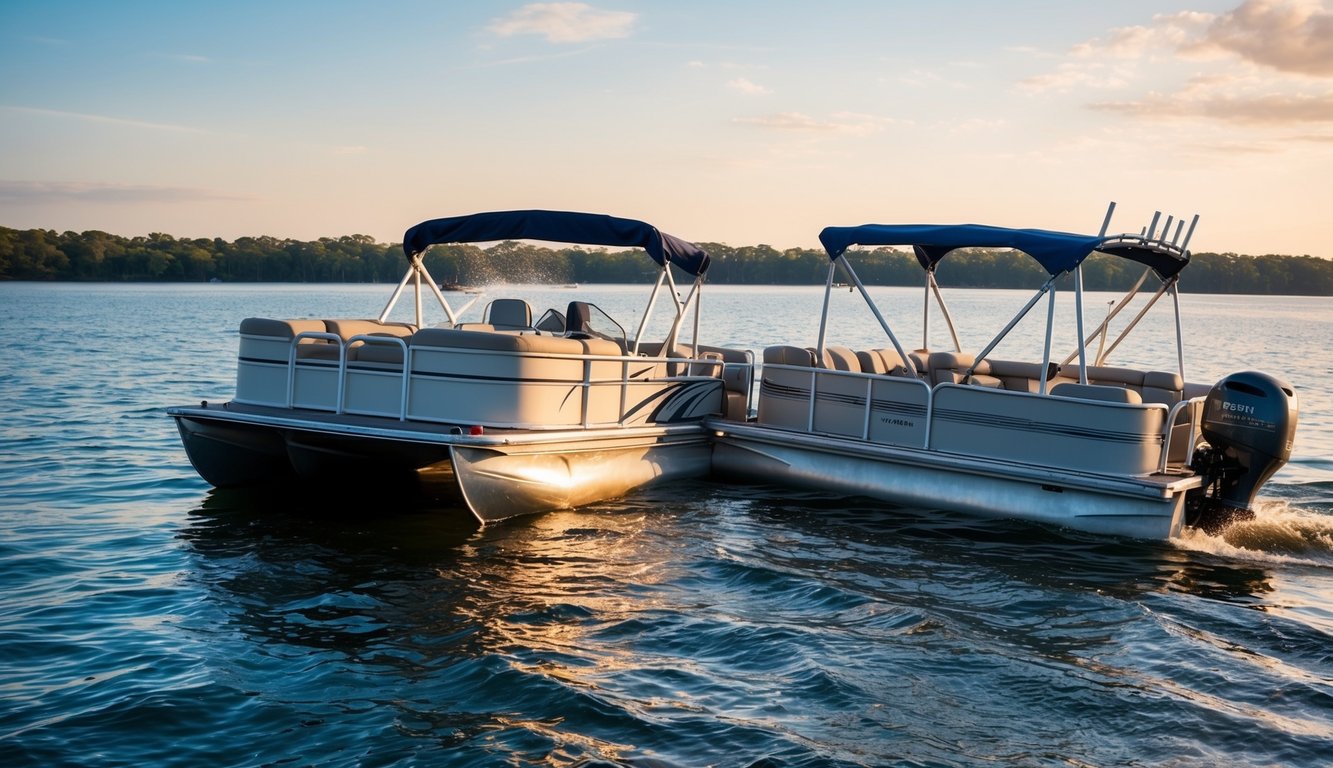
- Collision coverage is a crucial part of boat insurance that helps protect your investment. This coverage pays for repair or replacement of your pontoon boat if it collides with another watercraft or object, such as a dock.
- When your pontoon boat gets damaged in a collision, this coverage can help return your watercraft to its pre-accident condition or better. This means you won’t have to pay the full cost of repairs out of pocket.
- If you’re transporting your pontoon boat and get into an accident while hauling it on a trailer, your insurance situation becomes more complex. In this case, different types of insurance may come into play, including your auto insurance.
- For adequate protection, insurance experts typically recommend having collision coverage as part of your pontoon boat insurance. This coverage works alongside other protections like property damage liability, which covers damage you might cause to someone else’s property.
- Boat collision coverage is separate from comprehensive coverage, which protects against non-collision incidents like theft, vandalism, and weather damage.
Uninsured Boater Coverage
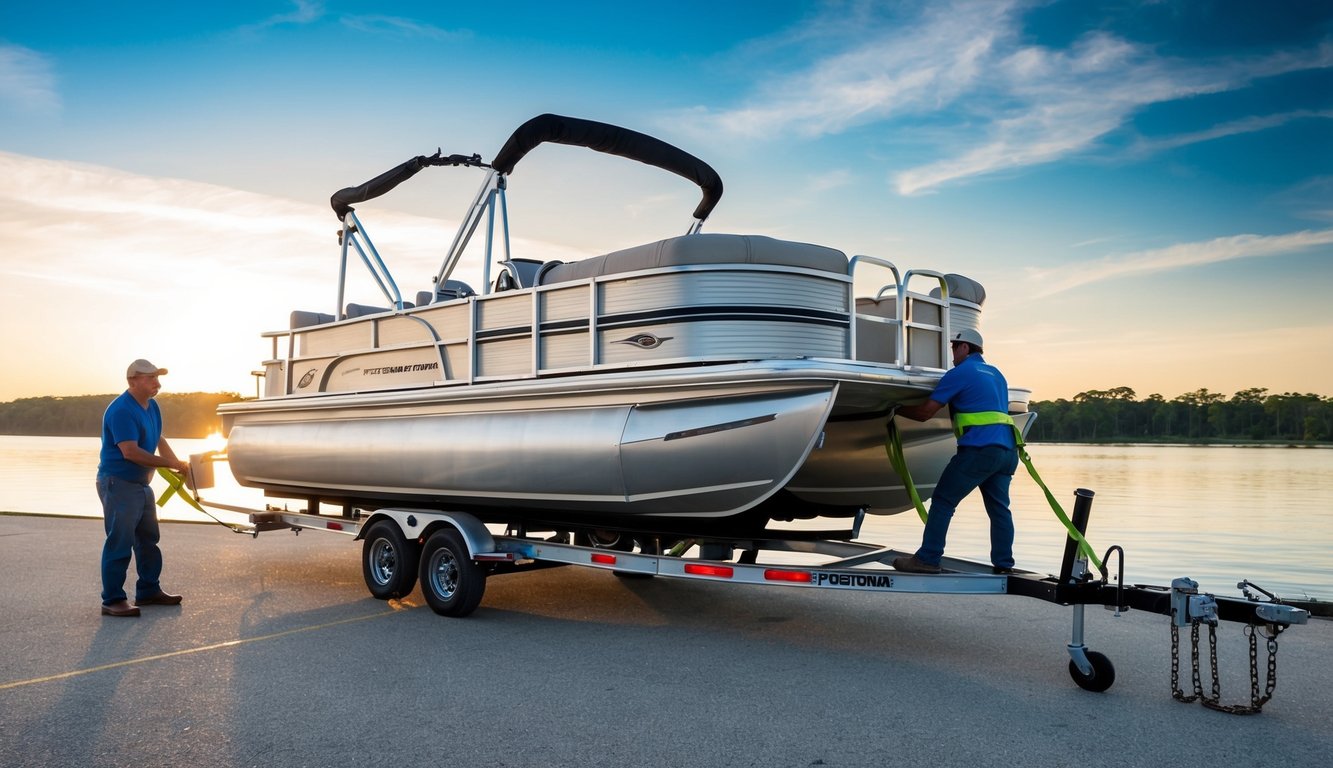
- When shipping your pontoon boat, it’s important to understand how uninsured boater coverage protects you. This coverage pays for injuries to you and your passengers if hit by a boater who has no insurance or inadequate coverage.
- Uninsured boater coverage compensates you for injuries caused by another boat operator who lacks insurance. This protection is especially valuable in situations where the other party can’t pay for damages they cause.
- Many pontoon boat insurance policies offer this as an optional coverage. It functions similarly to uninsured motorist coverage on auto insurance policies.
- This coverage can also protect you in hit and run scenarios on the water. When another boater damages your vessel and leaves the scene, you’re not left paying all costs yourself.
- Without this coverage, you might face significant out-of-pocket expenses for medical bills following an accident with an uninsured boater. Progressive notes that the coverage applies up to the limits specified in your policy.
- When shipping your pontoon boat, check if your current policy includes this protection. If not, consider adding it for comprehensive coverage during transport and future use.
